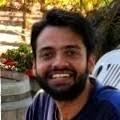Assessing the State of India's Birds using FOSS
Birds and their habitats are threatened with extinction around the world. Regional assessments of the ‘State of Birds’ are a vital means to prioritize data-driven conservation action by informing national and global policy.
Such evaluations have traditionally relied on data derived from extensive, long-term, systematic surveys that require significant resources, limiting their feasibility to a few regions in the world. In the absence of such ‘structured’ long-term datasets, ‘semi-structured’ datasets through citizen science efforts have recently emerged as a promising alternative in other regions around the world.
In 2023, State of India’s Birds (SoIB) Partnership, a network of individuals and 14 government and non-government organizations in the field of nature conservation, together compiled and published a comprehensive report on the conservation status of India’s bird species based on large-scale semi-structured data, following their first such effort in 2020.
Mapping Your Neighbourhood Avifauna (MYNA) - a web tool was also published accompanying the 2023 report, to enable closer engagement with bird enthusiasts, has helped conservationists to protect lakes, aided documentation to establish tiger corridors and biodiversity parks and guided environment assessments. SoIB recommendations also have been used by IUCN to change the red-list categories of bird species.
This report and MYNA were enabled by 30 million rows of public bird observations data submitted by 30 thousand citizen scientists to the eBird platform. The careful curation and robust statistical analysis of these data were powered by the universe of FOSS in R and its packages for scientific analyses.
With newer and periodically updated conservation status reports by the SoIB partnership on the anvil, and with growing popularity of hobbyist birding leading to ever-increasing eBird bird observation data corpus, FOSS tools will continue to play a central and enabling role in deepening and expanding our understanding of India’s birds and inform their conservation.
For ever-growing large datasets such as those contributed through citizen science and for non-profit nature conservation organizations work FOSS tools are imperative and is playing and will continue to play a big role in unraveling secrets of science and nature for ecologists beyond traditional methods and drive conservation and policy by its recommendations.
Technologists and computer engineers have a very important role in science and academicia in creating better, faster, optimal open source tools and furthering the above cause.
Which track are you applying for?
Pradeep Koulgi

As the only proposal from the Scientific R ecosystem, it'll be great if the proposer could spend a few minutes talking about it. Python dominates the Scientific Computing space, so it'll be valuable if the proposers could also talk about the challenges faced by them when using the Scientific R ecosystem in India, and what, if anything, the broader community could do to help improve the Scientific R user ecosystem in India.
This is also one of the few talks on the intersection of Open Data and Scientific Computing, and it'll be great to discuss challenges creating, curating, and working with open datasets.
The proposal doesn't provide a talk outline, but the actual talk should walk through the actual computations that are performed, libraries used, and so on.